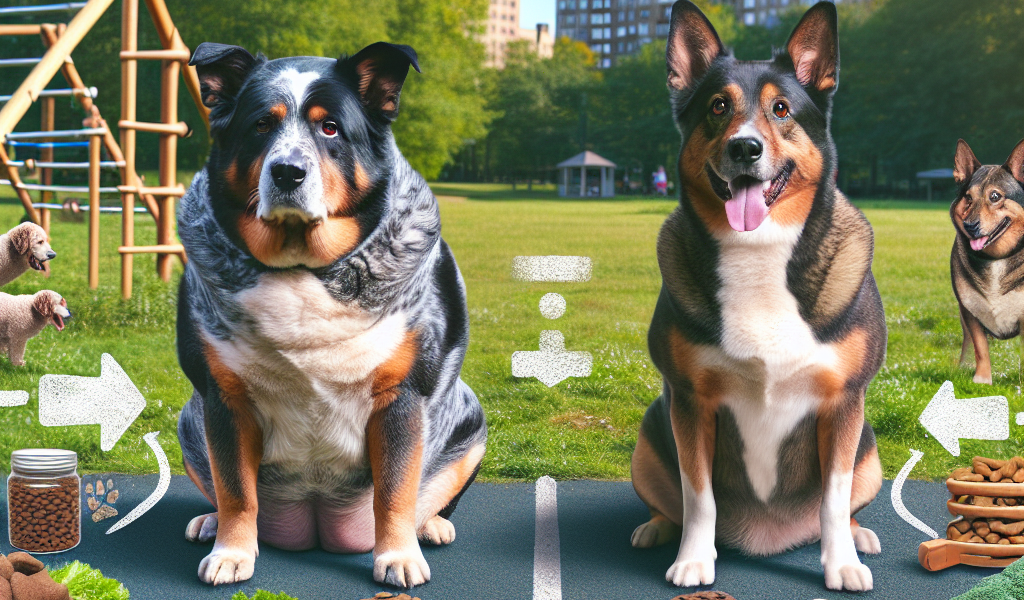Why Is Pet Obesity Bad
It’s heartbreaking to understand that the pudginess we often find adorable in our pets can lead to detrimental health issues. Our beloved companions stand to face significantly shortened lifespans due to health complications driven by obesity. Diving into the topic, “Why Is Pet Obesity Bad”, we aim to share insight on how these health concerns manifest and why it’s crucial to keep your pet at an optimum weight for their overall wellbeing. Ignorance is not bliss when it comes to the health of our furry friends, and battling pet obesity is absolutely essential.

Understanding Pet Obesity
Pet obesity is a growing concern in many parts of the world. But before we dive into it, let’s first define what it is.
Definition of Pet Obesity
Pet obesity, like human obesity, is a condition characterized by an excess of body fat. A pet is considered obese when its weight is 20% or more above the ideal body weight. This excess weight can pose serious health risks that can significantly lower the pet’s quality of life and potentially shorten their lifespan.
Prevalence of Pet Obesity Globally
Among the pet-owning households globally, pet obesity is an increasingly recognized problem. Various studies have revealed a significant rise in the number of overweight and obese pets in many countries.
Factors Contributing to Pet Obesity
There are several factors contributing to pet obesity. These include overfeeding, lack of exercise, genetic predisposition, underlining diseases, and age among others. Yet in most cases, pet obesity is largely preventable.
Health Risks Associated With Pet Obesity
Obesity in pets can significantly impact their health and well-being.
Cardiovascular Problems
Excess weight in pets can lead to cardiovascular problems. The increased body mass puts a strain on the heart, leading to conditions such as congestive heart failure and high blood pressure.
Diabetes Mellitus
Obesity can also lead to diabetes mellitus in pets, particularly in cats. The excess body fat interferes with the ability of the body to produce or respond to insulin, a hormone that regulates blood sugar levels.
Joint and Bone Issues
Overweight pets are prone to joint and bone issues such as arthritis and hip dysplasia due to the extra stress on the joints.
Reduced Lifespan
The overall negative impact of obesity on a pet’s health can significantly shorten their lifespan. Obese pets also encounter difficulty in breathing which can lead to further complications and discomfort.
Relationship Between Pet Obesity and Human Health
Pet obesity not only affects the health of the pet but can also have ramifications on human health.
Physical Health of Pet Owners
Owners of obese pets may experience reduced physical activity levels. The requirement of managing a pet with limited mobility or other obesity-related health conditions may affect the owner’s own regular exercise routine.
Mental Health Considerations
Having a pet with obesity-related health conditions can be emotionally and mentally stressful for owners. It may cause anxiety, distress, and economic burden.
Risk of Disease Transmission
Although rare, there are instances where obese pets can transmit certain diseases to humans, especially those with compromised immune systems.
Contributors to Pet Obesity
Several factors contribute to the prevalence of pet obesity.
Overfeeding
Overfeeding is a primary contributor to pet obesity. Many pet owners equate giving treats and large meal portions with expressing love for their pets. This, unfortunately, can lead to weight gain and obesity.
Lack of Exercise
Similar to people, pets need regular exercise to maintain a healthy weight. Sedentary living can contribute to weight gain and obesity.
Genetic Factors
Some breeds are genetically prone to obesity. However, this does not mean obesity is unavoidable. With proper diet and regular exercise, you can manage your pet’s weight effectively.
Underlying Diseases
Certain diseases can also lead to obesity in pets. Such diseases can affect metabolism or lead to reduced activity, causing weight gain.

Signs Your Pet May Be Obese
Identifying obesity in pets at an early stage is important to prevent health complications.
Physical Symptoms
Common physical symptoms include difficulty in feeling the ribs, loss of an observable waist, and abdominal sagging. An obese pet may also have difficulty in moving around.
Behavioral Changes
Changes in behavior such as increased fatigue, difficulty in walking or standing, or excessive sleeping may be signs of obesity.
Diagnosis by a Veterinarian
A diagnosis from a veterinarian is the most reliable method to determine if your pet is obese. Vets use standard techniques and checks to make this determination.
How to Prevent Pet Obesity
Preventing pet obesity primarily entails a healthy lifestyle for your pet.
Creating A Balanced Diet
Preparation of a balanced diet is essential. This includes measuring the correct portions and minimizing high-fat treats.
Importance of Regular Exercise
Regular exercise keeps pets physically fit and helps to control their body weight. Providing them with toys and engaging them in playtime are good ways to encourage movement.
Regular Vet Check-Ups
Regular vet check-ups can help detect early signs of obesity. Vets provide guidelines on feeding and exercise for pets based on their breed and size.

Treating Pet Obesity
If your pet is already obese, know that it’s not an irreversible state.
Importance of Early Intervention
Early intervention is crucial to halt further weight gain. Once identified, a concrete plan to reduce your pet’s weight should be set in motion.
Weight Loss Programs
Vets can help curate weight loss programs to ensure that weight loss is controlled and efficient. A successful weight loss program may include changes in diet and increase in exercise.
Medicinal Treatments
In some cases, medicinal treatments may be necessary to deal with complications arising from obesity.
The Role of Pet Food Companies in Pet Obesity
The pet food industry plays a significant role in pet obesity.
Marketing Tactics
The aggressive marketing of processed pet food, which may be calorie-dense, plays a part in the increasing rates of pet obesity.
Nutritional Transparency
Lack of nutritional transparency in pet food packaging often leads pet owners to overfeed without realizing it.
Product Innovations to Combat Obesity
Companies have started producing weight management food products for pets, which can be beneficial if used properly.

Social and Economic Impact of Pet Obesity
Pet obesity does not just affect individual households; its implications are felt across society.
Cost of Pet Healthcare
Pet obesity-related health complications result in higher healthcare costs due to frequent vet visits, medication, and special diets.
Effects on Pet Insurance
Higher incidences of pet obesity can lead to higher pet insurance premiums.
Impact on Pet-Related Industries
Pet obesity has further influenced industries related to pet care, introducing new products and services targeting weight loss.
Conclusion: The Importance of Addressing Pet Obesity
Implications for Pet Health
Addressing pet obesity is necessary to rectify health issues such as cardiovascular problems, diabetes, and joint issues, among others. This not only leads to a healthier pet but also a happier one.
Implications for Human Health
Considering the emotional bond between pets and their owners, addressing pet obesity also indirectly impacts human health by reducing the stress and anxiety of taking care of a sick pet.
Future Research and Policy Considerations
There is a need for more research on and mindful policies addressing pet obesity. More importantly, pet owners must understand the gravity of pet obesity and take proactive steps to ensure their pets maintain a healthy weight.
Pet obesity is a serious issue that merits attention not only due to its impacts on pets but also due to its profound effects on owners and society. By understanding, preventing, and addressing pet obesity, we can contribute to a healthier and happier life for our pets, and indirectly, for ourselves too.


